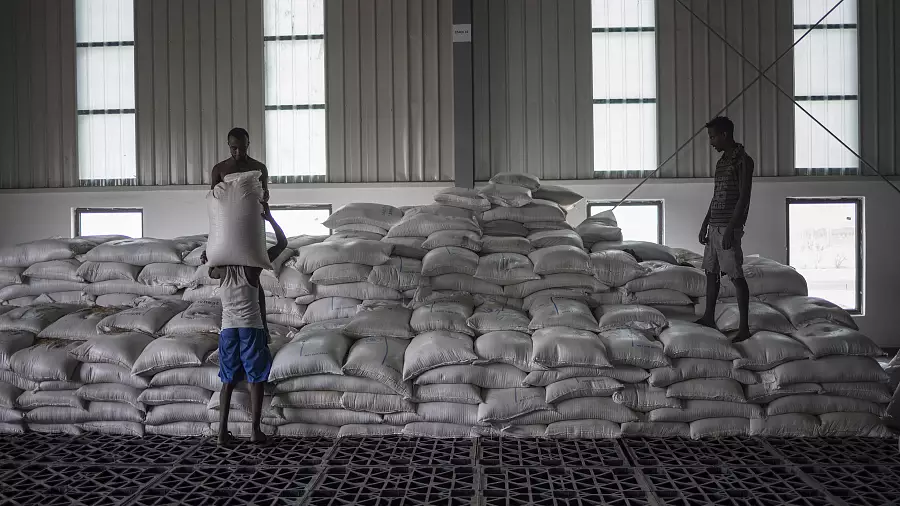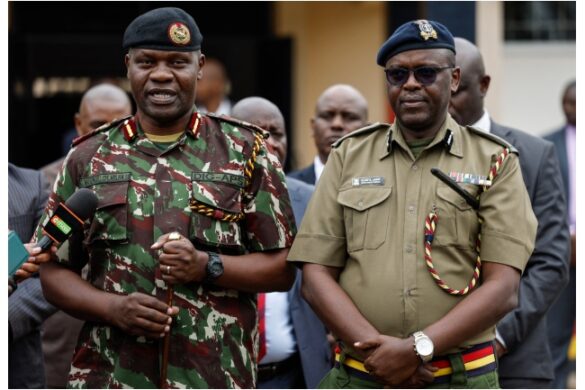The US has urged Ethiopia to allow “unrestricted access to fuel” in Tigray region in order for emergency aid to be distributed to areas low on food.
The US called for unfettered aid deliveries to Tigray and the neighbouring conflict-hit regions of Afar and Amhara, and urged the government to lift restrictions on cash and fuel to Tigray.
Ethiopia has previously termed claims of fuel shortage in Tigray a myth.
It says warehouses are full of bags of grain that cannot be distributed because of fuel shortages.
In recent weeks, Prime Minister Abiy Ahmed’s government and the Tigray People’s Liberation Front (TPLF) have both raised the prospect of negotiations to end the brutal conflict.
The US and EU envoys for the Horn of Africa on Tuesday urged Ethiopia’s government to resume essential services in Tigray after a rare visit to the war-torn region facing dire conditions.
The northern region has been struggling to cope with food shortages and no access to basic utilities since June 2021, when Tigrayan rebels recaptured it from federal forces after war erupted around 21 months ago.
Diplomatic efforts have picked up of late, with new US envoy Mike Hammer and EU envoy Annette Weber visiting Ethiopia to hold talks, including with TPLF leader Debretsion Gebremichael
“A swift restoration of electricity, telecom, banking, and other basic services in Tigray is essential for the people of Tigray,” the two envoys said in a joint statement.
Debretsion, who last week warned that key services would have to be reinstated in Tigray before negotiations could begin, offered “security guarantees for those who need to work to restore services”, the envoys said.
“With this security assurance, there should be no obstacle for the restoration of services to begin,” they added.
More than 13 million people need food assistance across northern Ethiopia, according to the UN.
- UN investigators –
The envoys’ visit partially coincided with a trip by UN rights experts to Ethiopia last week as the three-member team attempts to investigate abuses committed in Tigray during the war.
The UN Human Rights Council created the commission last December to probe alleged violations of international human rights, humanitarian and refugee law.
Ethiopia originally rejected the decision to create a commission, calling it “counter-productive”, before eventually approving its arrival in the country.
In a statement released on Tuesday, the commission said it had concluded its first visit to Ethiopia and met with the deputy prime minister, the minister of justice and other senior officials.
“The Commission hopes that the government will provide it with unhindered access without delay, so that it may visit sites and speak freely and privately with survivors, witnesses, and other persons of interest,” it said.
The conflict has driven hundreds of thousands of people to the brink of famine and displaced more than two million, while both sides have been accused of committing serious human rights violations.
Fighting has eased since a humanitarian truce was declared at the end of March.




